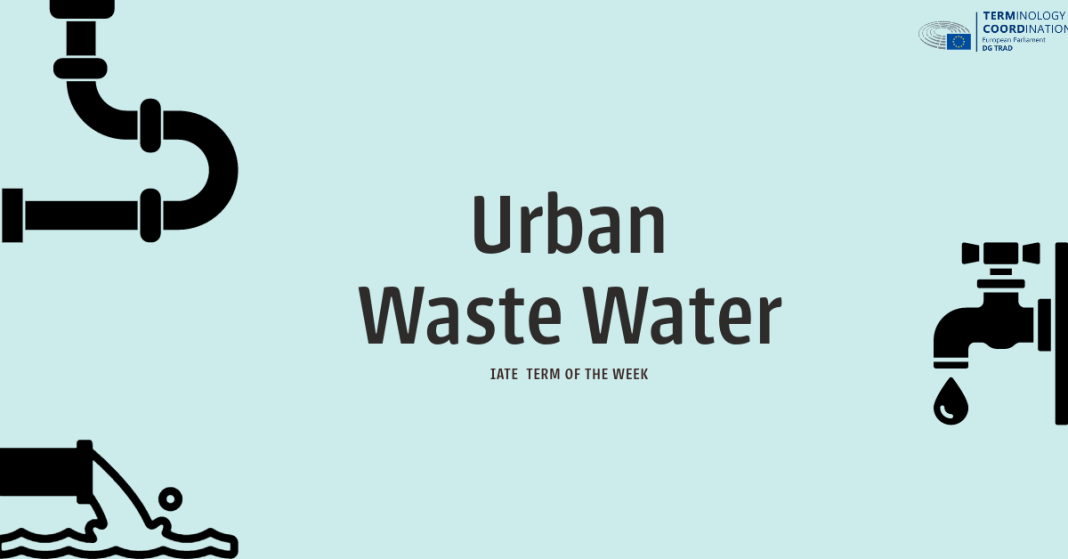Urban wastewater encompasses a diverse array of pollutants, including but not limited to, human waste, household chemicals, pharmaceuticals, and microplastics. When left unregulated, improper disposal or treatment of this wastewater can lead to severe consequences, contaminating water bodies, endangering aquatic life, and posing health risks to communities.

The management of urban wastewater stands as a pivotal concern in contemporary times, especially in the context of environmental sustainability and public health. The European Union has been at the forefront in formulating stringent legislation to address this critical issue, aiming to mitigate the adverse effects of urban wastewater on ecosystems and human well-being.
Urban Wastewater Treatment Directive (UWWTD)
Enacted in 1991 and amended subsequently, the UWWTD remains a cornerstone of EU legislation governing the collection, treatment, and discharge of urban wastewater. It mandates member states to establish adequate collection systems and treatment facilities, ensuring the removal of pollutants before releasing wastewater into the environment.
Water Framework Directive (WFD)
This directive, adopted in 2000, focuses on achieving good ecological status for all water bodies within the EU. It sets specific targets for the reduction of pollutants, aiming to protect and restore water quality across Europe.
Enforced to ensure the safety of bathing waters, this directive sets quality standards for designated bathing areas, monitoring and managing pollution levels to safeguard public health.
Despite robust legislation, challenges persist in achieving comprehensive urban wastewater management across all member states. Implementation and compliance with these directives vary, leading to disparities in wastewater treatment standards among nations.
However, substantial progress has been made. Many EU countries have invested in advanced treatment technologies, improved infrastructure, and heightened public awareness to enhance wastewater treatment efficiency. Collaborative efforts between member states, scientific communities, and environmental agencies have facilitated the sharing of best practices and innovative solutions.
The future of urban wastewater management in the EU relies on a collective commitment to innovation, investment, and compliance. Embracing emerging technologies such as advanced purification methods, decentralized treatment systems, and resource recovery from wastewater can significantly contribute to sustainable practices.
Furthermore, promoting public engagement and education is pivotal in fostering responsible wastewater disposal habits among citizens. Encouraging water conservation, proper waste disposal, and advocating for the reuse of treated wastewater in various sectors are essential steps toward a more sustainable future.
Urban wastewater management stands as a critical nexus between environmental preservation, public health, and legislative action within the European Union. While significant strides have been taken, continued efforts are necessary to ensure uniform compliance, technological advancements, and public participation to achieve sustainable urban wastewater management across the EU.
In adhering to stringent legislation, fostering innovation, and nurturing a culture of responsible water usage, the EU can pave the way for a cleaner, healthier, and more sustainable future for generations to come.
Bibliography
European Commission. (2022). DIRECTIVE OF THE EUROPEAN PARLIAMENT AND OF THE COUNCIL concerning urban wastewater treatment (recast). Retrieved from: https://eur-lex.europa.eu/legal-content/EN/TXT/?uri=CELEX%3A52022PC0541&qid=1701708898572
European Commission. (2023). Urban wastewater. Ensuring that urban wastewater is properly dealt with to protect the environment and human health. Retrieved from: European Commission Environment – Water: https://environment.ec.europa.eu/topics/water/urban-wastewater_en.
European Parliament. (2023). Urban wastewater treatment: Updates EU rules. Retrieved from: Think Tank – Advanced Search: https://www.europarl.europa.eu/thinktank/en/document/EPRS_BRI(2023)739370
Written by Marina Scelta
Born in Palermo (Italy), passionate about learning languages since a very young age, she studied Interpreting and Translation for English and French in her hometown, then moved to London for a Master’s Degree in the same domain (University of Westminster), eager to earn some first-hand experience in an international environment. In 2020, she decided to move back to Italy, where she applied for her second Master’s Degree in Foreign Languages for International Communication (Università degli Studi di Torino). In 2021, she had the opportunity to move to Strasbourg as an Erasmus student for almost one year, at the end of which she made of that city her new home. Currently in the process of writing her master’s thesis, in her free time Marina enjoys travelling, singing, walking in the nature, solving crosswords puzzles, and mostly looking around for vegan food.

